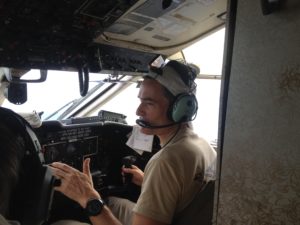Humanitarian
Christiaan is a dedicated to bettering the life of others whether it is in his professional life or privately.
Professionally, through the company he manages Lancaster 6, Christiaan ensures investment in entrepreneurial endeavours in developing countries where L6 operates. Believing that stimulating economic development is more beneficial than aid, Christiaan ensures the Lancaster Foundation is promoting economic development in the most needy of countries.
Lancaster6 is often called on during Humanitarian Crisis to assist with humanitarian aid delivery and the evacuation of persons at risk.
Privately, Christiaan sponsors a scholarship for upcoming students at Nairobi university and has been a big supporter of financially ‘enslaved’ employees in the Middle East who are in legal jeopardy where he helps them to be cleared of any legal charges and repatriates them to their home countries.
In Europe Christiaan is actively engaged with EU/UN bodies involved in resolving the Migrant Crisis.
Behind every picture is a story…
‘I received a phone call from the Prime Minister Salva Kir’s office around 0900 in the morning advising us that there was a village on the border of Ethiopia which had been flooded in for six months and the people were starving. Was there anything we could do to help?
Although outside of our current scope of operations at the time, the PM knew we had some capability that might be useful. We gathered the team together and conducted a rapid planning session. We manually unloaded and reloaded the aircraft with 2 tonne of flour bags, added an additional loadmaster and were airborne around 1300. With quite a long flight to the Ethiopian border and back again we were now running up against a last light security curfew back in Juba. As there are no aviation maps of South Sudan so we did all our planning on google earth and planned our airdrop enroute. Being a Fighter Pilot, airdrop is not that different. Its about being stable on the right run in heading, at the right altitude in the right configuration with good crew coordination.
We found the village which resembled an island in the middle of an inland sea of Nile waters that extended to the horizon in all directions. We opened the ramp and conducted an overflight of the village where we could see there was nowhere dry to drop the Maize Meal. We discussed our options and setup for a clearing run of the main ‘street’ in the village. As cars were not in use in this part of the world it is probably more correct to call it the central meeting area of the village.
Flying over the village we could see the clearing was large enough and clear of people. Light and fuel was fast running out so we committed in for the drop. Holding it level at 200ft altitude down the main street of the village was my priority whilst the Captain called for the drop and our loadmasters cut the restraint. This was a ‘bag’ drop where the food is triple bagged and explodes from one bag into another on hitting the ground. We had not tested this system previously and were worried about whether the system would work – and why we had been adamant about not dropping in the water where the maize could spoil.
‘GO! GO! GO!’, the CAPTAIN yelled through the cabin as he turned on the green light. Our loadmaster cut the restraint and pushed the 2 tonne aft on the floor rollers as I pitched the nose up to assist the load escape. There was a thump through the airframe as the 2 tonne was released and the aircraft immediately felt light again. I turned the aircraft to complete one last run and determine how many bags had survived. What I saw next made me feel awful. I saw women and men, mainly women, run into the main clearing and start eating the meal that had split from the bags which had exploded. They were desperately scooping the meal up off the dirt and eating it, making their faces white with flour. I felt sick to the core knowing I would be heading back to my 1 star shipping container to spend the night. Then they started waving…and my 1st world guilt soon left me for I knew our team had made a huge difference to those villagers on that mission.’

Christiaan conducting a crew brief for a humanitarian food drop in South Sudan

Recent Comments